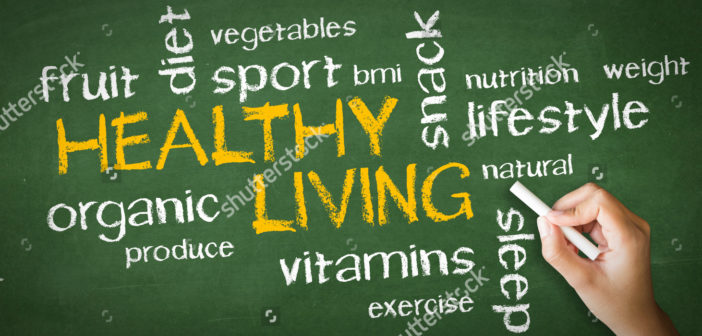We all want to be living in good health, here are some proven ways to eat a balanced diet, lose weight, prevent disease, and more, according to registered dietitians.
Sugar Is Sugar, No Healthy Sugar
There is a misconception that switching from white sugar to honey, maple syrup, coconut sugar or agave is healthier. Sugar is sugar and eating too much of any of these alternative sweeteners will have the same effect on the body as white sugar. There may be a higher nutrient content in some ‘natural’ alternatives but these occur in very small quantities so in order to glean anything useful you would end up eating a lot of sugar. Natural alternatives tend to be richer in flavor so you may be likely to use less of them, but better to focus on healthier additions to the overall diet and limit all sources of sugar, this is according to Rob Hobson, nutritionist and head of Healthspan.
Add More Foods Into Diet
When it comes to diet, people tend to be much more concerned about which foods or food groups to eliminate since many are perceived as ‘bad.’ However, the focus should be on incorporating more of the foods often missing from the diet, such as fiber-rich fruits, healthy vegetables, and whole grains. Adding more healthy foods into the mix can often displace some of the less desirable choices and leave you feeling more satisfied.’ —Andrew James Pierce, MS, RD, CSSD, CSCS, inventor of the SugarChecked app
Take Advantage Of Your Bad Memory
‘Out of sight, out of mind works for junk food too. If you’re going to purchase tempting treats, don’t keep them visible and you’ll probably forget you even have them! In the meantime, keep good-for-you foods in the front of your fridge so the first thing you see when opening up your refrigerator is fruits, veggies, protein, and healthy snacks.’ —Audrey Hasse, MS, RDN for Swiss Farms and owner of A.M. Fit
Myth Of Pricey Juice Cleanse
‘Don’t over-complicate things. You don’t need an expensive juice cleanse, because basic pantry staples like flaxseed, cans of tuna, oats, and fresh greens from the market can provide more nutrition and make your dollar go farther.’ —Erinn Gregory, RDN, Phoenix, Arizona
When Weight Gained Is Positive
‘Don’t look to reach an unrealistic body weight. As they age, women should expect to weigh more than they did in their 20s and 30s. It is totally normal and studies show that it is beneficial for supporting bone strength and may even help you live longer. Trying to lose those last 10 pounds is not only extremely frustrating, but the very low calorie diet required to achieve this can lead to poor nutrition and hurt your metabolism. Accept that our bodies change as we age and that’s fine.’ —Pam Schoenfeld, MS, RD, featured speaker at the International Wise Traditions Conference
Stop When You Are Full
‘It is quite easy for the eyes to be bigger than the stomach. We may seem ravenous but it’s a necessary habit to keep portions in check. Even though we may be completely satisfied and full halfway through a large French fry or large milkshake, we tend to eat the whole thing because we paid for it. That habit will really pack on pounds over the years. You have to learn to be satisfied with less, plain and simple.’ —Rene Ficek
All Calories Are Not Created Equal
‘Unfortunately, people still think of calories first over quality. They live on fat-free ‘foods’ or simple starches, like pretzels. They are not eating real food, which leaves them unsatisfied and causes them to eat more over the course of the day. If you choose foods that are high in fiber, protein, and healthy fats you may be consuming more calories in that serving, but it will help you eat less overall and be healthier.’ —Beth Warren, MS, RDN, CDN, founder of Beth Warren Nutrition and author of Living a Real Life With Real Food
Alcoholic Drinks Don’t Count As Hydration
‘If you drink wine or coffee you actually have to hydrate more. I suggest one six-ounce glass of water for every glass of wine or coffee you drink. Health guidelines for women recommend no more than one eight-ounce glass of wine per day. Use smaller glasses and mugs to limit how much you pour and focus on taking smaller sips.’ —Melanie Young, certified nutrition coach, author, radio host
Want To Detox? Buy More Broccoli
‘Detoxing with pills or juices is trendy, but our bodies already have a detoxification system to identify, convert, and process toxins for elimination. However, it needs specific nutrients to work, like glucoraphanin, which is found in greatest concentration in broccoli florets. Broccoli’s glucoraphanin works for about 72 hours, so while you should eat it daily. At a minimum, have some every three days.’ —Ashley Koff, RD
Carbohydrates Not The Devil
‘Carbohydrates have gotten such a bad reputation recently with all the low-carb, crash diets out there but carbs are an important part of our daily nutrient intakes—they are what our brains run on! Carbs should provide about half of our daily calorie needs. Many people think that in order to lose weight they need to cut out carbohydrates completely. But if you’re trying to lose weight while you’re working out then you need to maintain a good supply of glycogen for your muscles and brain by eating healthy carbs.’ —Rachel Zimmerman, RD, CNSC, CD at Indiana University Hospital at IU Health
Eat With Your Fingers
‘I’ll often include finger foods in my clients’ meal plans, as it’s not just kids who love to eat with their hands. For instance a plate with in-shell pistachios, lightly salted edamame, hummus, whole-grain crackers, and sliced mushrooms and bell peppers provides lots of nutrients and also takes longer to eat, leading to a more satisfying experience. The summer is perfect timing to take your finger-food meal outside and have a picnic while enjoying the weather, scenery, and good food. Food should be fun, not boring!’ —Amy Gorin, MS, RDN, owner of Amy Gorin Nutrition in Jersey City, New Jersey
Organic Milk Is Not Healthier Than Regular Milk
‘Often times there are very few real differences between ‘healthy’ foods and their ‘unhealthy’ counterparts. For instance, there is no biologically meaningful difference between organic milk and conventional milk. Worry less about these meaningless differences and focus more on choosing plenty of fruits, vegetables, lean meats, poultry and fish.’ —Marie Spano, MS, RD, CSCS, CSSD, sports dietitian
Eat Protein In The Morning To Prevent Sugar Cravings At Night
‘Increasing protein intake early in the day can help reduce sugar cravings in the late afternoon. Make sure to have an excellent source of protein with every breakfast such as Greek yogurt, cottage cheese, or two to three eggs. Protein in the morning helps stabilize blood sugar, which helps improve satiety along with mood and concentration.’ —Sharon Collison, RD, sports dietitian and clinical instructor at the University of Delaware
No Silver Bullet
‘Getting healthy is about taking tiny steps, sometimes so small that progress is not noticeable at first. Instead, getting healthy is about making the better choice most of the time. This tip is particularly helpful for those who are used to buying into the latest fad diet. They see the latest diet book and think, ‘This worked for X; it must be right for me.’ The truth: We are all unique and the only way to determine what nourishes us is to really pay attention to how we feel.’ —Liza Baker, Integrative Nutrition Health Coach + Kitchen Coach
Too Much Of A Good Thing
‘Just because snack foods like dark chocolate, nuts, nut butters, and avocado have earned nutritional kudos for being good sources of heart-healthy fats and other nutrients doesn’t mean you should eat a lot of them. People think they can eat as many ‘healthy’ snacks as they want, but they’re still high in calories. When snacking on such foods, portion control is key: Limit dark chocolate to 1 to 1½ ounces; avocado to two tablespoons (mashed into guacamole, say) or an eighth of a whole avocado; nuts to ¼ cup; and nut butter to a couple of tablespoons.’ —Rachel Zimmerman
Throw Out Your Scale
‘Don’t get too attached to the number on the scale. It offers little or no indication of health status and does not account for fitness level, bone density, or muscle mass. Getting clients to take the blinders off and look around at their overall quality of life is my ultimate goal since it leans toward positive rather than negative reinforcement.’ —James Pierce
False Premises
‘Clients trying to lose weight often tell me they are counting ‘macros’—tracking grams of protein, carbohydrate, and fat—or calories, on web or phone applications. Yet when we review all the data generated by these apps, their micronutrient intakes often fall well below the recommended values for important vitamins and minerals. They are often surprised to learn that these shortfalls can compromise their health and stall weight loss in some instances. Animal foods like beef, shellfish, liver, and whole eggs supply zinc and vitamins A and B6, and should not be avoided in the misguided belief that they are ‘fattening’ or somehow bad for you.’ —Pam Schoenfeld
Fresh Produce Is The King
‘Convenience foods are great—as long as they’re the right ones. The cornerstone of healthy nutrition is fresh produce. But who has time to do all the prep work in takes to prepare a healthy meal? Not me! If peeling, cutting, and chopping aren’t your thing, let someone else do the work. Grocers offer an ever-expanding selection of chopped, diced, or minced produce. They can cut dinner preparation time in half! Plus, keeping sliced veggies and prepared dips like hummus are great to have on hand at all time.’ —Rene Ficek, RD, lead nutrition expert at Seattle Sutton’s Healthy Eating
Avoid Multitasking While Eating
‘How many times have you found yourself multitasking while eating and then reached into that empty bag of chips to find that you’ve eaten the whole thing? Distracted eating accounts for countless extra calories consumed, but no calories enjoyed. How sad is that? I encourage my clients to eat mindfully, to pay attention to the flavors, textures, and sensations while eating food. This allows you to enjoy delicious food, or realize that something just isn’t good and stop eating it.’ —Rebecca Clyde MS, RDN, CD, blogger at Be Truly Nourished
Sleep Like A Fool!
‘We’re so rushed that we squeeze in the bare minimum of hours of sleep and exist in a permanently fatigued state. This is challenging when it comes to managing our weight and our health because we’re denying our bodies the chance to recover and repair. I often see clients struggling with plateaus and we talk about how they manage their sleep and stress. I advise at least seven hours per night; preferably eight or more if possible.’ —Cara Harbstreet
Hunger May Not Mean You’re Hungry
‘When you begin a clean eating program, you’re most likely going to have hunger pains or food cravings at the beginning. This doesn’t necessarily mean you’re not getting enough food. Rather your body is balancing to proper nutrition. As your blood sugar adjusts these food cravings will stop. A need for water can also be disguised as hunger so stay hydrated.’ —Sara Doll
Cook At Home
‘Cooking at home instead of ordering out is a great way to save calories (and money!). This way you control what is going into your meal, and it allows you to avoid the extra salt and fat we tend to get at restaurant meals. It is also a great way to start introducing new foods into your diet that you might not usually try. Think you can’t cook? There are plenty of videos online, or even a fun local cooking class to get get you started. It is not nearly as intimidating or hard as many people think.’ —Jen Flachbart, MS, RDN, owner of Plant Roots Nutrition
Exercising
Exercising does not mean you should over exert yourself, because if you do, the harm far outweighs the benefit. It might even lead to death. A 30 walk everyday might be sufficient.
Water Therapy
Drinking water last thing at night before going to bed and first thing in the morning is a very good way of keeping the body in healthy cycle




